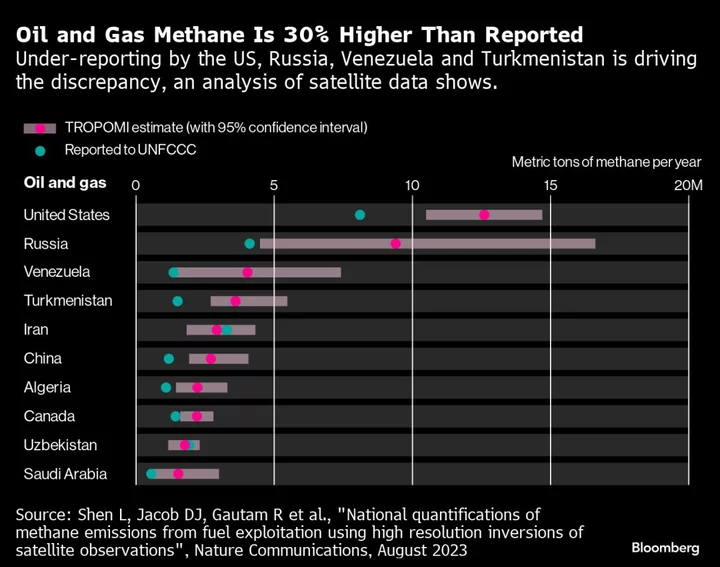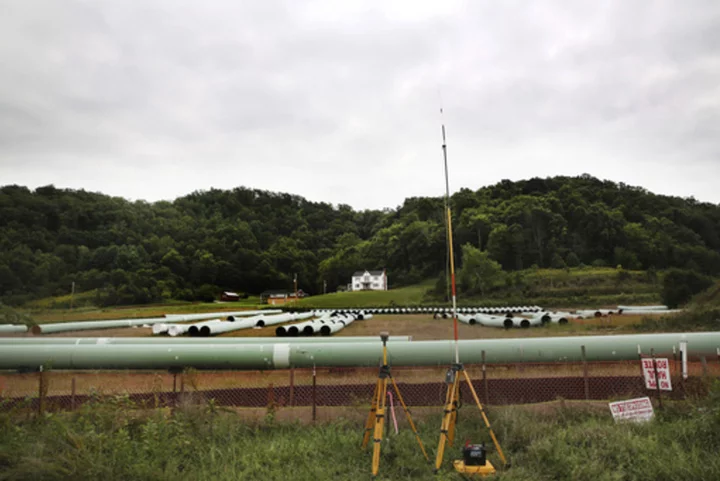Observed methane releases from global oil and gas operations are 30% higher than what countries estimate in reports to the UN, according to a new study that analyzed satellite observations of the potent greenhouse gas.
The world’s four largest oil and gas emitters, the US, Russia, Venezuela and Turkmenistan, account for most of the overall discrepancy, according to the report published last month in Nature Communications. The satellite data challenges figures reported to the UN, which rely on so-called emissions factors — estimates for how much methane equipment might normally release — applied to production and use rates.
The real-world data recorded by satellites suggests those estimates are way too low. The authors used a “top-down” approach to model and estimate emissions for most of the world with fossil fuel production by using 22 months of detections from the European Space Agency’s Sentinel-5P satellite.
“Satellite data should be used to monitor the accuracy of the national emission inventories submitted” to the UN, said Daniel Jacob, one of the authors and a professor at Harvard University’s department of earth and planetary sciences.
Adding top-down methods to the bottom-up estimates currently used would more accurately pinpoint who and what is responsible for methane emissions and offer governments a clearer picture of how to make the cheapest and most effective cuts. The new research is notable for its breadth, covering 96% of global emissions from oil and gas and bolstering previous studies that have detailed underreporting of methane emissions.
Methane is the primary component of natural gas, but it can also leak from the Earth during oil and coal production. The potent greenhouse gas has more than 80 times the warming power of carbon dioxide during its first two decades in the atmosphere. Curbing releases of the gas could do more to slow climate change than almost any other single measure.
Three of the ten largest oil and gas methane emitters identified in the report — the US, Canada, Uzbekistan and Saudi Arabia — have signed the the Global Methane Pledge, which targets a 30% reduction in global emissions of the gas by the end of this decade from 2020 levels. If methane generated from human activity is responsible for a larger share of the world’s total emissions, including from natural sources, then a 30% cut from that activity would have a bigger effect on overall methane concentrations, according to Jacob.
Read more: The Cheap and Easy Climate Fix That Can Cool the Planet Fast
The study identified significant opportunities to reduce methane emissions in Venezuela, Turkmenistan, Uzbekistan, Angola, Iraq, Ukraine, Nigeria and Mexico, all of which have methane intensities between 5% and 25% for their oil and gas industries. Lowering those intensities to the global average of 2.4% would reduce emissions from the sector globally by 18%.









